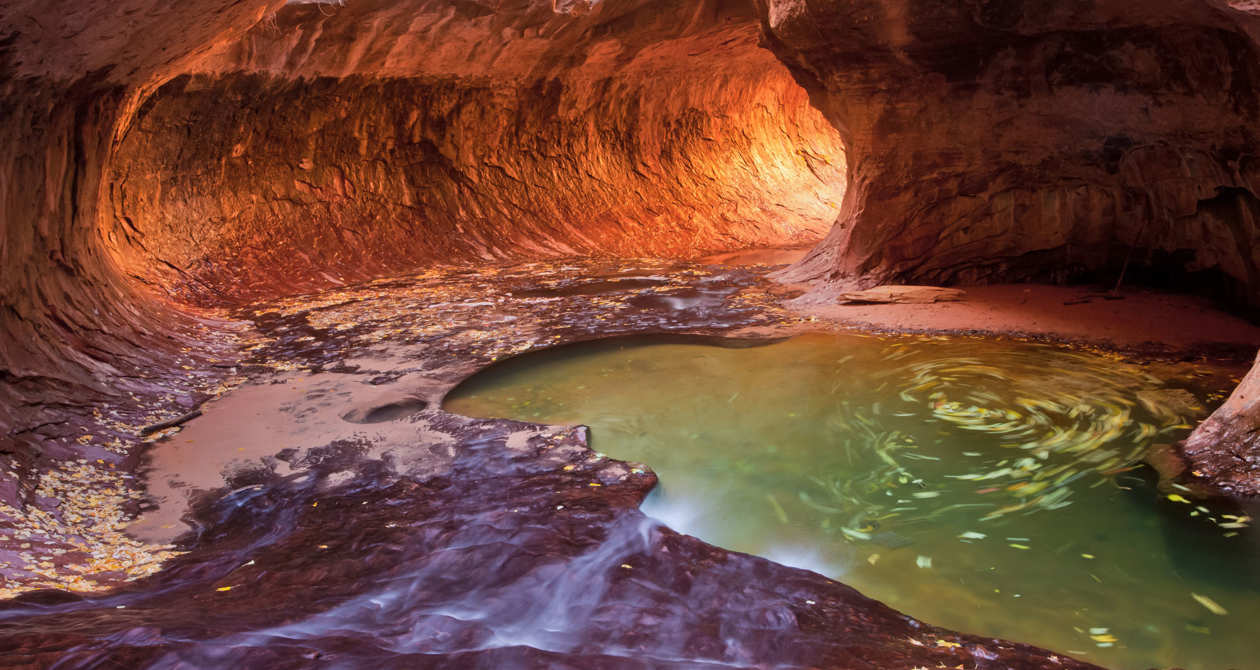Hidden within the rugged canyons of Zion National Park in Utah, lies a natural masterpiece that defies imagination – The Subway. This enchanting geological formation isn’t just a unique hiking destination; it’s a portal to a world of sculpted rock, crystal-clear pools, and an adventure that’s etched in the memories of every traveler fortunate enough to explore it.
A Geological Masterpiece: The Subway
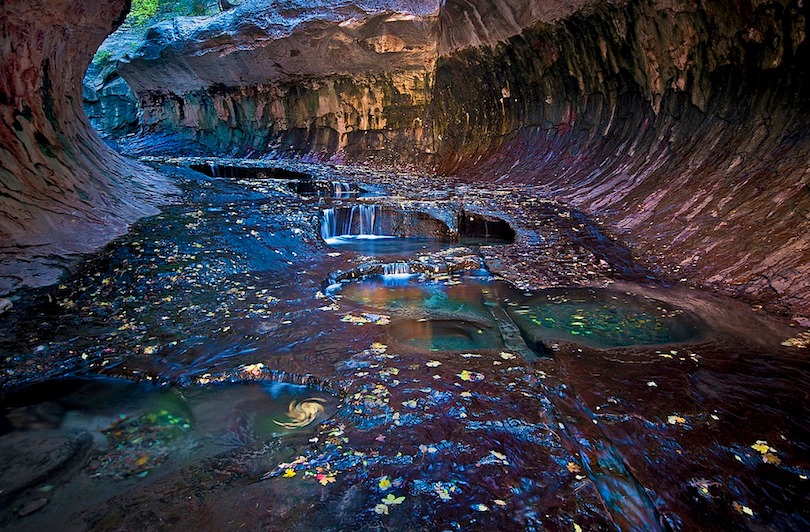
Tucked away in the Left Fork of North Creek, The Subway is a striking slot canyon known for its curved, cylindrical shape that resembles a subway tunnel. This captivating formation is the result of millions of years of water and erosion carving through the Navajo Sandstone, creating a natural wonder that’s a testament to the power of nature’s artistry.
The Journey: A True Adventure
Embarking on the journey to The Subway is an adventure in itself. The hike requires a permit due to its limited access and delicate ecosystem. A mix of hiking, rock scrambling, and even a bit of canyoneering, the journey demands a moderate level of fitness and a sense of adventure. As you traverse through a diverse landscape of slickrock, forests, and streams, the anticipation of what lies ahead keeps you motivated.
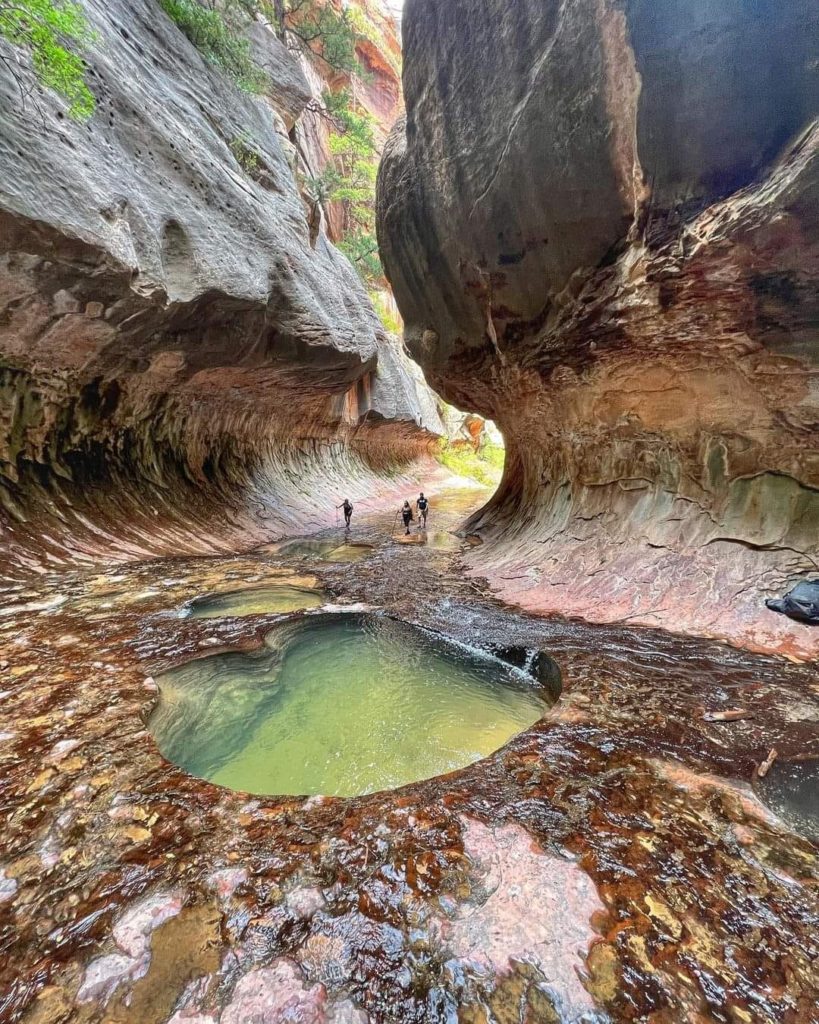
How was The Subway formed in Zion National Park?
The Subway, a remarkable geological feature in Zion National Park, was formed through a combination of geological processes over millions of years. The unique tubular shape of The Subway is a result of water erosion working its magic on the Navajo Sandstone, creating a slot canyon that resembles a subway tunnel.
Formation Process:
- Formation of Navajo Sandstone: The foundation for The Subway’s formation began around 180 to 190 million years ago during the Jurassic period. At that time, the area that is now Zion National Park was covered by a vast desert with shifting sand dunes. Over time, these sand dunes were compressed and cemented, forming the Navajo Sandstone layer.
- Uplift and Erosion: As tectonic forces and uplift continued to shape the region, rivers and streams began to cut through the sedimentary layers, exposing the underlying Navajo Sandstone. Water played a crucial role in shaping the landscape, gradually eroding and carving into the rock over millions of years.
- Abrasion and Hydraulic Action: The erosive forces of flowing water, laden with sand and debris, carved into the sandstone over time. Abrasion, the grinding action of particles carried by the water, and hydraulic action, the force of moving water against rock, gradually chiseled away at the rock’s softer layers, forming the narrow and winding channels of the slot canyon.
- Curved Erosion: The distinctive curved shape of The Subway is a result of water working its way through the rock along a path of least resistance. The flowing water created curved walls and carved out rounded channels that resemble a subway tunnel, giving the formation its name.
- Potholes and Pools: The erosive action of water also created potholes, cylindrical depressions in the rock, which further deepened the channel. Over time, pools of water formed within these potholes, giving the canyon its signature pools that add to the visual allure of The Subway.
The intricate and delicate process of water erosion, combined with the gradual uplift of the region and the varying hardness of rock layers, contributed to the formation of The Subway. Its creation is a testament to the power of water to shape and sculpt even the hardest of rocks over geological time scales.
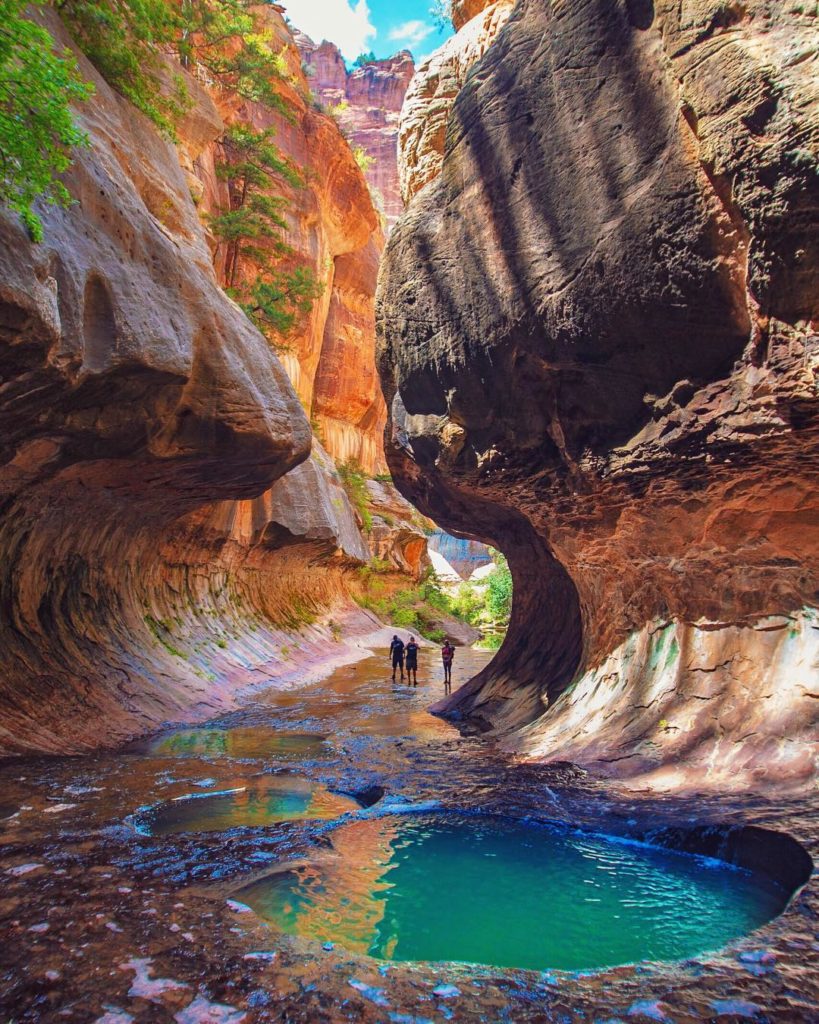
Today, The Subway remains an awe-inspiring example of the natural artistry that has been carved into the rock by the forces of nature. It stands as a reminder of the dynamic processes that have shaped the Earth’s landscapes and offers visitors a chance to witness the incredible results of millions of years of geological evolution.
Into the Depths: Exploring The Subway
As you descend into the depths of the canyon, the walls close in around you, creating a sense of awe and wonder. The interplay of light and shadows paints intricate patterns on the sandstone walls, guiding your path deeper into the heart of the canyon.
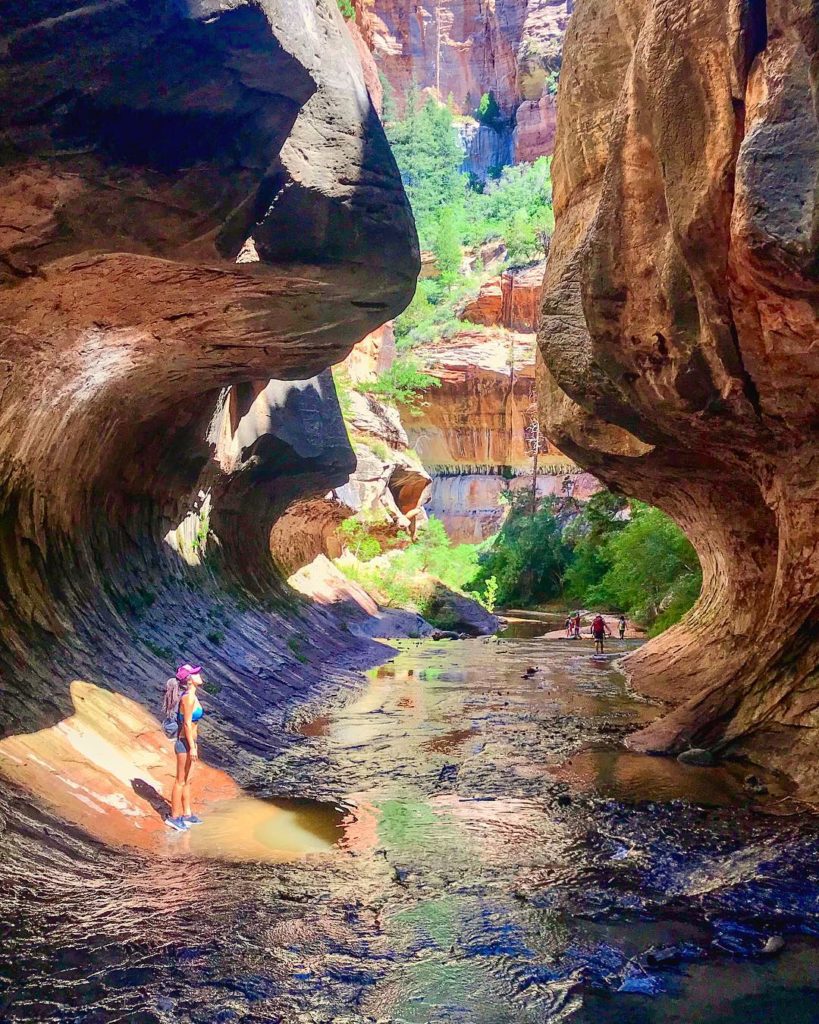
The highlight of the journey is the iconic Subway section itself. A section of polished sandstone that’s been sculpted into a cylindrical shape by the flowing waters, it leads to a series of emerald pools. To reach the Subway, you might need to wade through waist-deep water and negotiate some obstacles, adding an element of excitement to the adventure.
A Photographer’s Dream
For photographers, The Subway is a dream come true. The unique interplay of water, light, and rock formations creates a constantly changing canvas of colors and textures. The delicate curves and reflective pools provide endless opportunities to capture mesmerizing images that reflect the canyon’s otherworldly beauty.
Respecting Nature’s Canvas: Conservation and Preservation
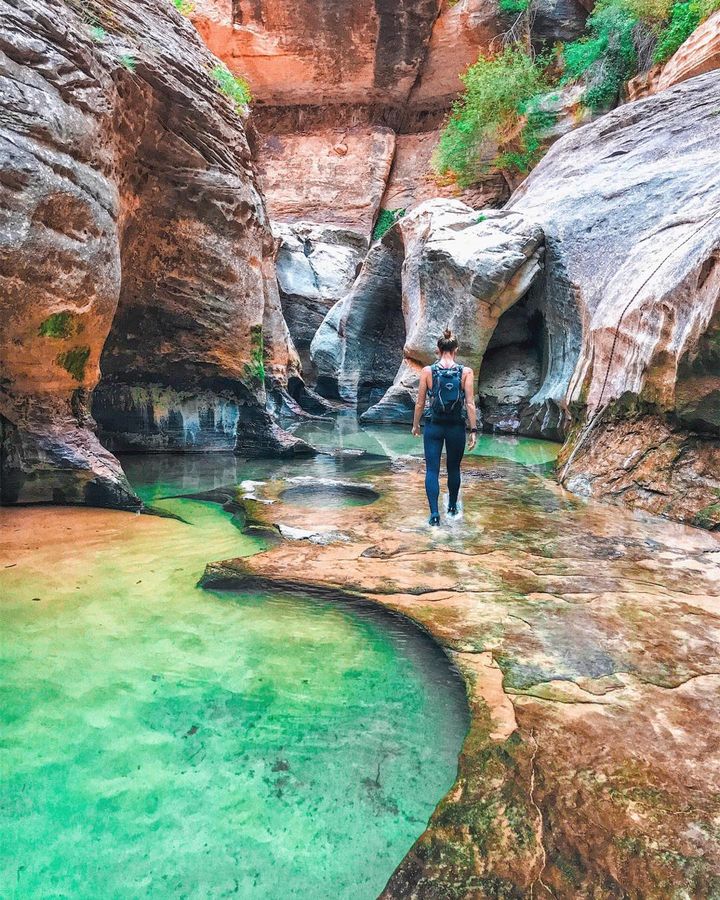
The Subway is a fragile ecosystem that requires utmost care and respect from visitors. It’s important to follow Leave No Trace principles, stay on designated paths, and obtain the necessary permits to minimize the impact on the environment. By treading lightly, we can ensure that future generations can continue to experience the magic of The Subway.
Planning Your Adventure
Access to The Subway requires a permit, which can be obtained through a lottery system due to its popularity. The best time to visit is during the late spring and early fall when weather conditions are favorable and the water levels are manageable.
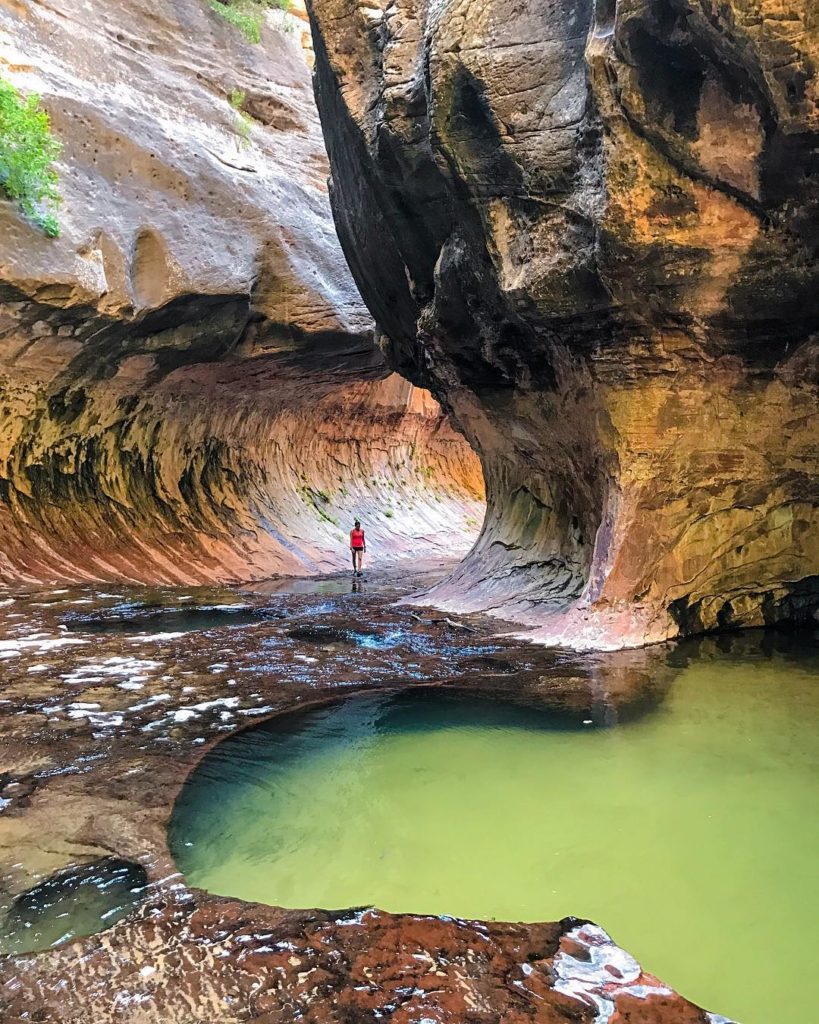
The Subway isn’t just a hike; it’s a transformative experience that transports you to a realm of natural wonder and beauty. It’s a reminder of the earth’s artistic prowess and a testament to the power of time and erosion. As you stand within the walls of this captivating slot canyon, you’ll be reminded of the profound beauty that can be found when humans venture into the heart of the wilderness and connect with the planet’s ancient and eternal rhythms.
Laissez-nous vous guider vers des voyages inoubliables, sans stress ni mauvaises surprises. Que vous rêviez d'escapades romantiques, de vacances en famille ou d'aventures solo, nous avons la solution parfaite pour vous. Obtenez la meilleure offre de vol pour vos voyages.

